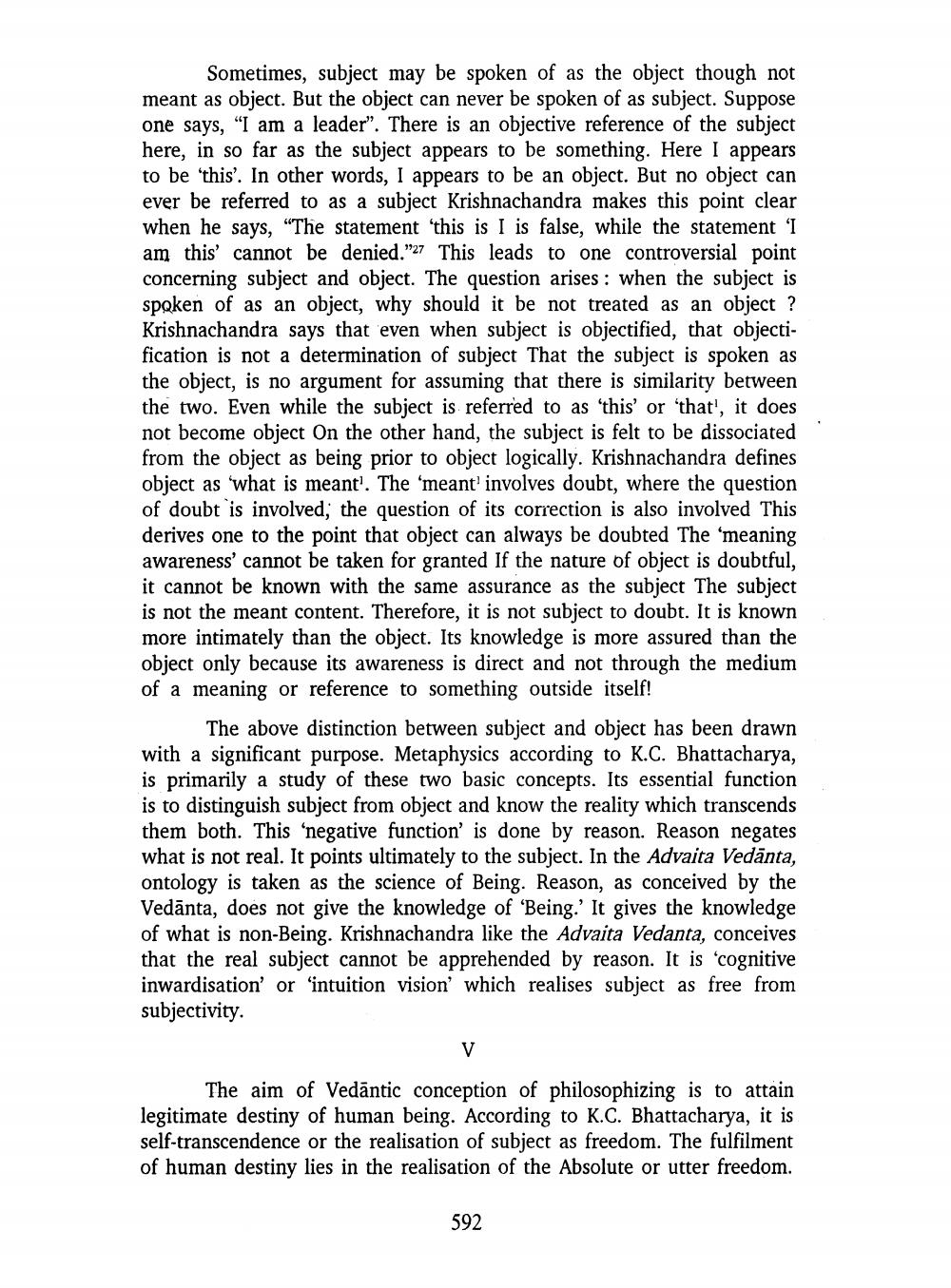________________
Sometimes, subject may be spoken of as the object though not meant as object. But the object can never be spoken of as subject. Suppose one says, "I am a leader". There is an objective reference of the subject here, in so far as the subject appears to be something. Here I appears to be 'this'. In other words, I appears to be an object. But no object can ever be referred to as a subject Krishnachandra makes this point clear when he says, "The statement this is I is false, while the statement 'I am this' cannot be denied."27 This leads to one controversial point concerning subject and object. The question arises: when the subject is spoken of as an object, why should it be not treated as an object? Krishnachandra says that even when subject is objectified, that objectification is not a determination of subject That the subject is spoken as the object, is no argument for assuming that there is similarity between the two. Even while the subject is referred to as 'this' or 'that', it does not become object On the other hand, the subject is felt to be dissociated from the object as being prior to object logically. Krishnachandra defines object as 'what is meant'. The 'meant' involves doubt, where the question of doubt is involved, the question of its correction is also involved This derives one to the point that object can always be doubted The 'meaning awareness' cannot be taken for granted If the nature of object is doubtful, it cannot be known with the same assurance as the subject The subject is not the meant content. Therefore, it is not subject to doubt. It is known more intimately than the object. Its knowledge is more assured than the object only because its awareness is direct and not through the medium of a meaning or reference to something outside itself!
The above distinction between subject and object has been drawn with a significant purpose. Metaphysics according to K.C. Bhattacharya, is primarily a study of these two basic concepts. Its essential function is to distinguish subject from object and know the reality which transcends them both. This 'negative function' is done by reason. Reason negates what is not real. It points ultimately to the subject. In the Advaita Vedanta, ontology is taken as the science of Being. Reason, as conceived by the Vedanta, does not give the knowledge of 'Being.' It gives the knowledge of what is non-Being. Krishnachandra like the Advaita Vedanta, conceives that the real subject cannot be apprehended by reason. It is 'cognitive inwardisation' or 'intuition vision' which realises subject as free from subjectivity.
V
The aim of Vedantic conception of philosophizing is to attain legitimate destiny of human being. According to K.C. Bhattacharya, it is self-transcendence or the realisation of subject as freedom. The fulfilment of human destiny lies in the realisation of the Absolute or utter freedom.
592




